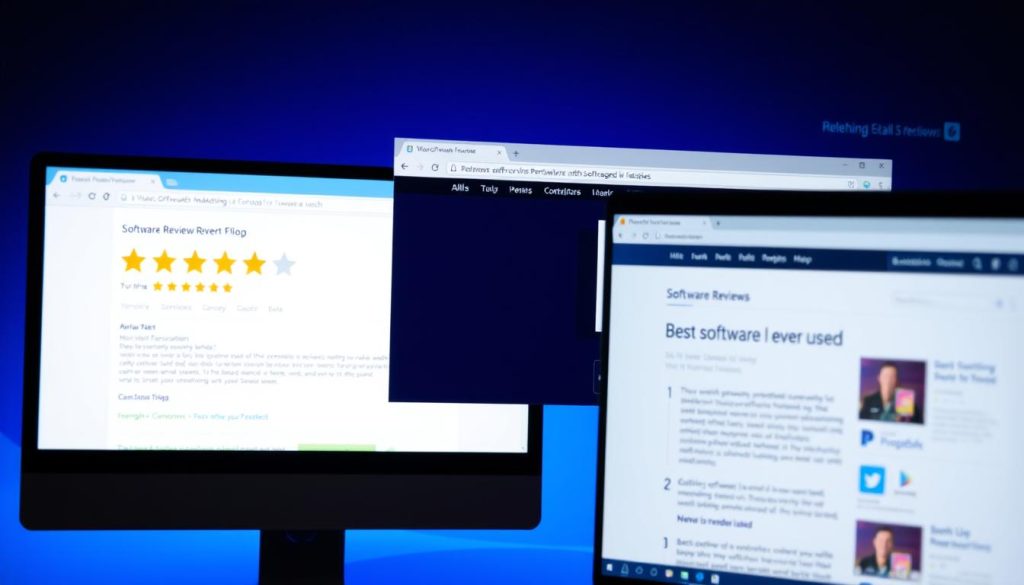Traditional marketing tactics often fall short in today’s competitive software landscape. Grassroots marketing offers a powerful alternative for software promotion. It builds authentic connections with users and leverages community-driven strategies for growth.
This guide explores grassroots marketing benefits for software businesses. You’ll learn practical, low-cost strategies to promote your software effectively. We’ll cover audience targeting, word-of-mouth tactics, and social media leverage.
These approaches can help create a thriving community around your software. They also drive sustainable growth and increase visibility.
Key Takeaways
- Discover the power of grassroots marketing for software promotion
- Learn how to identify and engage with your target audience
- Explore tactics for building a loyal community around your software
- Leverage word-of-mouth and social media to amplify your software’s visibility
- Measure and analyze the success of your grassroots marketing efforts
Understanding Grassroots Marketing
Grassroots marketing is a strategic approach that targets a company’s audience through community-driven initiatives. It builds authentic connections with potential customers by addressing their needs and interests. This method uses organic, local-level engagement instead of traditional top-down marketing tactics.
What is Grassroots Marketing?
Grassroots marketing connects with customers at the local level. It uses word-of-mouth, community events, and social media to create support for a product or service. This approach aims to build advocacy without relying on large-scale advertising campaigns.
Benefits of Grassroots Marketing for Software
Software companies can greatly benefit from grassroots marketing. It helps build a loyal user base and generates organic buzz. This approach allows companies to connect with their audience on a deeper level.
- Build brand awareness and establish themselves as thought leaders in their industry
- Gather valuable feedback and insights directly from their target audience
- Encourage user evangelism and word-of-mouth referrals
- Acquire new customers at a lower cost compared to traditional marketing channels
- Maintain a more personal and authentic connection with their user community
Grassroots marketing empowers software companies to foster a sense of community. It helps users feel invested in the product’s success. This strategy cultivates a deeper connection between the company and its customers.

“Grassroots marketing is all about creating a community around your product or service and nurturing that community to drive growth and advocacy.” – Jane Doe, Marketing Strategist
Identifying Your Target Audience
Promoting software through grassroots marketing requires understanding your target audience. Knowing their preferences helps craft effective strategies. Let’s explore steps to identify your potential customers.
- Analyze your current user base: Look at the demographics, interests, and usage patterns of your existing customers. This can provide valuable insights into the type of audience you should target.
- Research your competition: Examine the target audiences and marketing tactics of your competitors. This can help you identify underserved segments or areas where you can differentiate your software.
- Create buyer personas: Develop detailed profiles of your ideal customers, including their age, gender, location, occupation, goals, challenges, and preferred communication channels. This will help you tailor your messaging and outreach efforts.
- Gather customer feedback: Engage with your users through surveys, interviews, or online forums to understand their pain points, preferences, and expectations. This can help you refine your target audience and improve your software accordingly.
Identifying your audience helps create effective grassroots marketing campaigns. It drives meaningful engagement with your software. Your efforts can resonate with potential customers.

Successful grassroots marketing builds strong connections with your audience. Understand their needs to provide value. This approach builds trust and drives software adoption.
Building a Community Around Your Software
Creating a thriving community is key to successful software promotion. It fosters engagement and loyalty among users. Let’s explore two strategies for building a strong software community.
Engaging with Online Communities
Online communities are powerful platforms for connecting with your target audience. Find relevant forums, subreddits, or social media groups where potential users gather.
Participate actively by sharing insights and answering questions. Focus on building genuine relationships instead of just promoting your software. Establish yourself as a trusted expert in your field.
Hosting Local Events and Meetups
Face-to-face interactions can significantly strengthen your community. Consider hosting local events like user meetups or workshops. These gatherings allow users to share experiences and learn from each other.
In-person events foster community and provide opportunities for feedback and networking. They also offer chances for product demonstrations and user interactions.
Consistent engagement online and offline creates a vibrant ecosystem around your software. This approach cultivates loyal followers who become powerful advocates for your product.

“A thriving community is the foundation for long-term software success. Invest in building meaningful connections, and your users will become your greatest ambassadors.”
| Benefits of Building a Software Community | Key Strategies |
|---|---|
|
|
Leveraging Word-of-Mouth Marketing
Word-of-mouth marketing is a potent tool for software companies. It boosts awareness and drives growth. User reviews and testimonials tap into customer trust, attracting new users.
Encouraging User Reviews and Testimonials
Positive reviews can transform software promotion. They showcase real user experiences. Here are ways to encourage customer feedback:
- Sending automated post-purchase emails requesting reviews
- Offering incentives, such as discounts or freebies, for leaving reviews
- Engaging with customers on social media and asking them to share their thoughts
- Featuring user testimonials on your website and in marketing materials
Authentic reviews outweigh crafted marketing messages. Focus on creating exceptional user experiences. This naturally inspires customers to become your advocates.
| Benefits of User Reviews | Challenges of Encouraging Reviews |
|---|---|
|
|

User reviews and testimonials are powerful marketing tools. They effectively promote your software. A loyal customer base becomes your most valuable marketing asset.
Utilizing Social Media Platforms
Social media is a powerful tool for software companies. It helps connect with target audiences and build loyal communities. Popular platforms can effectively promote your software and engage potential users.
Creating Valuable Content
Success on social media hinges on creating valuable, relevant content. This can include tutorials, product updates, and industry insights. It can also feature entertaining content that aligns with your brand.
Consistently publishing high-quality content builds trust and increases brand awareness. It also drives more traffic to your software.
Interacting with Influencers
Collaborating with industry influencers can boost your software’s credibility. It helps reach a wider audience. Identify influential figures who align with your target market.
Engage with experts, bloggers, or social media personalities. Consider sponsoring content, guest posting, or partnering on projects.
| Social Media Platform | Key Benefits for Software Promotion |
|---|---|
| Rapid dissemination of news, updates, and customer engagement | |
| Targeting professional users and showcasing industry expertise | |
| YouTube | Creating tutorial videos, product demonstrations, and thought leadership content |
| Visually-driven platform for showcasing software features and user experiences |
“Leveraging social media platforms is essential for software companies to reach and engage with their target audience in today’s digital landscape.”
Strategic use of social media can boost software companies’ online presence. Creating valuable content and collaborating with influencers helps promote offerings effectively. This approach resonates well with target markets.
Collaborating with Complementary Products or Services
Software companies can boost growth through strategic partnerships. Collaborating with complementary products or services opens new avenues for visibility. This approach can drive increased adoption and brand recognition.
Successful collaborations rely on identifying compatible products or services. These should enhance user experience or provide extra value. Integration, joint events, or shared campaigns can leverage each other’s customer base.
- Seek out complementary products or services that cater to the same target audience, but do not directly compete with your software.
- Explore opportunities for joint content creation, such as webinars, blog posts, or educational resources, to jointly reach and educate your shared customer base.
- Investigate the possibility of integrating your software with compatible applications, creating a seamless and valuable experience for your users.
- Collaborate on co-branded marketing initiatives, such as social media campaigns or email outreach, to amplify your reach and credibility.
- Consider offering discounts or bundled packages when users purchase your software alongside a complementary product or service.
| Collaboration Type | Potential Benefits | Key Considerations |
|---|---|---|
| Joint Content Creation | Expanded audience reach, co-branding, knowledge sharing | Alignment on target audience, messaging, and promotion strategies |
| Software Integration | Improved user experience, increased customer loyalty, cross-selling opportunities | Technical compatibility, user data privacy, revenue sharing |
| Co-Branded Marketing | Leveraged industry influence, enhanced credibility, lead generation | Complementary brand image, aligned marketing goals, resource allocation |
Strategic collaborations can boost grassroots marketing efforts for software companies. This approach expands customer bases and positions brands as valuable industry solutions. It drives growth and fosters a sense of community among partners.
“Collaboration is the key to unlocking new opportunities in the software industry. By partnering with complementary products or services, you can create a synergistic effect that benefits both your business and your customers.”
How To Promote Software Using Grassroots Marketing
Promoting software can be tough in today’s crowded digital world. Grassroots marketing offers a powerful, cost-effective solution. It taps into community-driven initiatives to build loyal followers and drive organic growth.
A key strategy is to identify and engage with your target audience. Understand their pain points, preferences, and favorite channels. Create content that resonates with ideal customers to build trust and community.
Hosting local events and meetups is another effective tactic. These gatherings let you connect with users, gather feedback, and showcase your software’s features. Encourage user reviews and testimonials to boost your brand’s credibility.
Social media is crucial for grassroots software marketing. Create engaging and informative content to attract your target audience. Build a strong online presence to expand your reach.
Team up with complementary products or services. This can help you tap into new customer segments. It’s a great way to grow your user base.
Track key metrics to measure your grassroots marketing success. Monitor user engagement, customer acquisition, and retention rates. Use this data to refine your strategies and drive business results.
| Key Grassroots Marketing Tactics for Software Promotion |
|---|
|
“Grassroots marketing is about creating a personal connection with your customers and empowering them to become advocates for your brand.” – Jane Doe, Marketing Strategist
Measuring and Analyzing Results
Grassroots marketing for software needs ongoing evaluation. Monitor key metrics to gain insights into your strategies’ success. This data helps you make smart decisions to improve your approach.
Tracking Key Metrics
Track metrics that match your business goals. These may include website traffic, user engagement, and community growth. Don’t forget customer reviews and sales conversions.
Analyze these data points regularly. Look for trends and assess your grassroots initiatives’ impact. This analysis can reveal areas for improvement.
Adjusting Your Strategies
Use your data to adapt your marketing strategies. Test new ideas and change course when needed. This ensures your efforts connect with your target audience.
Stay flexible and respond to your community’s changing needs. Keep refining your approach to drive the results you want.




